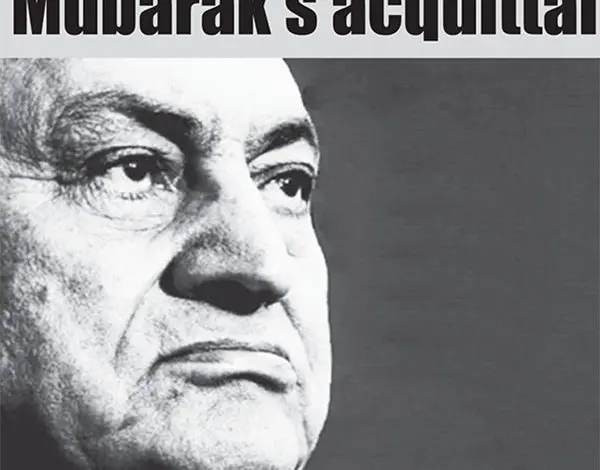
On Jan. 25, 2011, Egypt revolted against tyranny. Egyptian security forces gunned down more than 800 peaceful protesters during the 17-day uprising that led to the fall of Hosni Mubarak, the dictator who has been ruling the country for 30 years.
Last week, Mubarak and seven of his security commanders, including ex-interior minister Habib al-Adly, were cleared of the death of the demonstrators. Police and civilian mercenaries employed by Mubarak’s government were mostly behind the killings. But in a travesty of justice, the former autocrat and his aides were not held responsible for the crimes.
Mubarak’s unfair acquittal is a sign of the return a dreadful era of unaccountability in Egypt.
The former dictator was not only cleared of the murder and corruption charges leveled against him. By being on track to be released from his luxurious detention at a military hospital, he is being acquitted of all the wrongdoings of his rule, which left the Egyptian nation poor, weak and divided.
Since the dawn of civilization, Egypt has been a pioneer in education, technology, art and architecture. As recently as the 1960’s, Egypt was leading the Arab world culturally and politically. The northeast African nation supported the Palestinian people, had a self-sufficient economy and produced classics in music, cinema and literature.
But under Mubarak and his predecessor’s leadership, the country became a ghost of its former self. It lost its status as a great nation.
Cairo is said to be the only major city in the world whose skyline did not witness the rise of major high buildings over the past 30 years. More than 25 percent of Egyptians cannot read or write, according to the CIA World Factbook. While the Mubarak regime was selling Egyptian natural gas to Israel below the cost of its extraction, more than a quarter of all Egyptians lived in poverty. From 2006 to 2011, Mubarak sealed off all gateways to the Gaza Strip, cooperating with the Israeli government to put 1.6 million Palestinians under a strict diet on the verge of malnutrition.
Mubarak will not be punished for all the damage he inflicted on Egypt and the Arab world. The dictator will be free, and the military he once commanded now rules the country.
The coup that toppled elected president Mohammad Morsi last year was to bring back the old order— Mubarak’s order— not to answer the legitimate demands of anti-Muslim Brotherhood protesters. Gulf monarchies, including Saudi Arabia, were quick to grant millions of dollars to the Egyptian military as compensation for toppling Morsi.
The coup was a Saudi-funded counter-revolution against the democratic aspiration of the masses.
The Egyptian judiciary is not independent. Since toppling Morsi, the Egyptian military has used the judicial system to achieve its roadmap of complete takeover of the country. Egyptian judges follow the coup authorities’ policies. They sentenced hundreds of the Muslim Brotherhood supporters to death and did not spare pro-democracy activists, landing many journalists and symbols of the 2011 revolution behind bars.
Mubarak’s acquittal is a warning to the activists of the Jan. 25 revolution. Since he was disposed, Mubarak became a ghost figure in Egyptian politics. When his iron grip on power slipped, he became politically insignificant because he has no support in the streets. The former dictator is a loathed figure across all segments of Egyptian society. The military-controlled judiciary did not appease anybody by dropping the charges against him.
However, what the new Egyptian regime achieved by declaring the former president and his criminal friends innocent was to prove to its domestic and international opponents that it can do anything, no matter how unpopular. It was an arrogant statement of total control.
President Abdel-Fattah el-Sisi and his crew are taking textbook steps to solidify their coups— jailing opponents, vilifying foes, killing protesters, censoring dissent and using the judiciary as a tool.
“Military Coup Regime Unexpectedly Behaving Like A Military Coup Regime” wrote Lebanese British satirist Karl Sharro in a parody headline commenting on the verdict.
It is hardly surprising that the new government in Egypt is acting like a military coup regime. However, it is unexplainable that the U.S. government is still funding the new tyrannical Egyptian authorities against American law, which prohibits aid to governments established by coups.






Leave a Reply